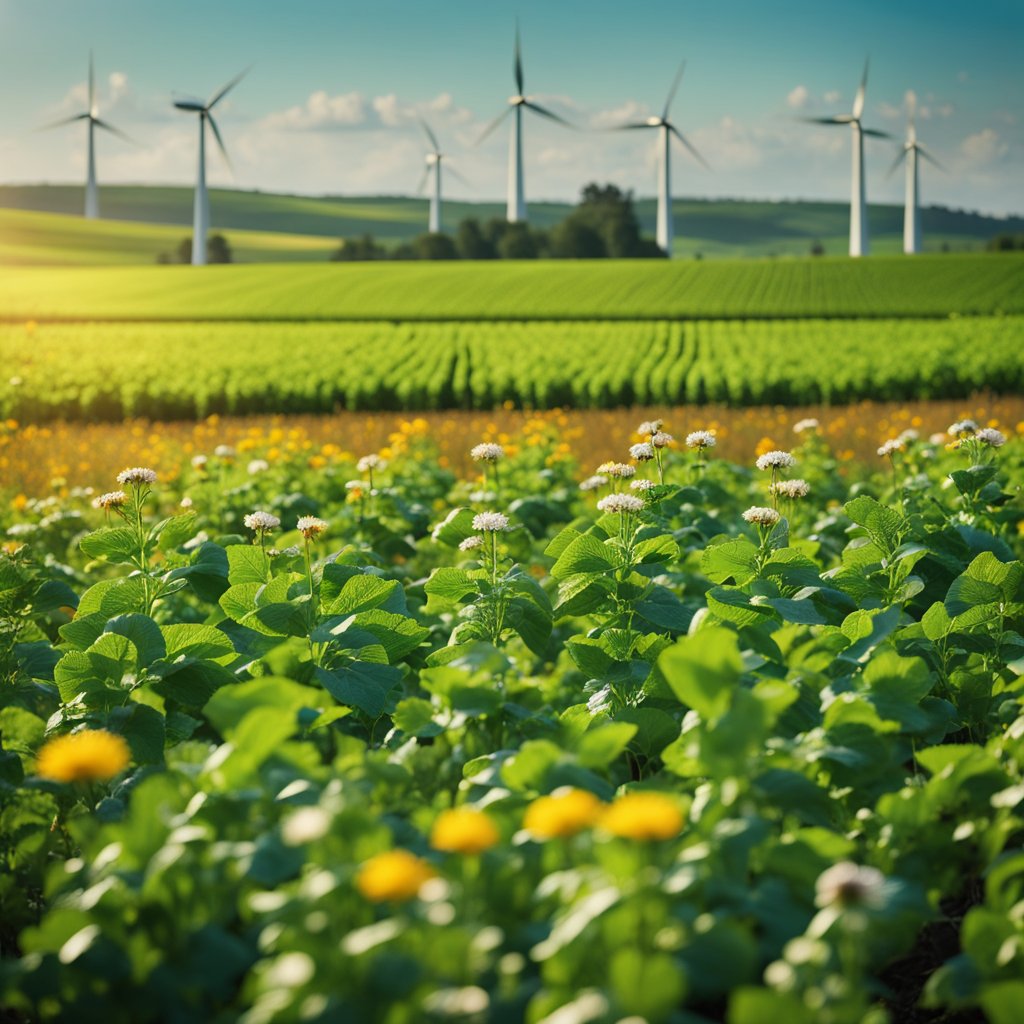
10 easy eco-friendly practises for a greener lifestyle; look at farms tells a story of an ever changing world. It’s more important than ever to adopt eco-friendly practices for a greener lifestyle to reduce our impact on the environment. With climate change and environmental degradation becoming increasingly urgent issues, simple changes in our daily lives can make a big difference. Here are 10 easy eco-friendly practices that everyone can adopt for a greener lifestyle.
1. Reduce, Reuse, Recycle
The iconic mantra of environmentalism, the three Rs are a great place to start. By reducing our consumption, reusing items, and recycling whenever possible, we can significantly decrease the amount of waste we produce. According to the Environmental Protection Agency, recycling just one ton of paper can save 17 trees, 7,000 gallons of water, and 463 gallons of oil.
2. Conserve Energy
Conserving energy not only reduces your utility bills, but it also reduces greenhouse gas emissions. Simple practices like turning off lights and appliances when not in use, using energy-efficient light bulbs, and unplugging electronics can make a big impact. According to the Department of Energy, the average American household spends $2,000 a year on energy bills, with much of that energy wasted.
3. Use Eco-Friendly Products
When shopping for household items, look for products that are biodegradable, non-toxic, and made from sustainable materials. For example, choosing cleaning products that are free of harsh chemicals and are packaged in recyclable containers can minimize your environmental footprint. Additionally, opt for products that are certified organic or cruelty-free to support ethical and sustainable practices.
4. Eat Sustainably
The food we eat has a significant impact on the environment. By choosing locally grown, organic, and seasonal produce, you can reduce the energy and resources required for transportation and production. Additionally, reducing meat consumption and supporting sustainable farming practices can also contribute to a greener lifestyle. According to the World Wildlife Fund, food production is responsible for 26% of global greenhouse gas emissions.
5. Reduce Water Usage
Water scarcity is a growing concern, and it’s essential to conserve this precious resource. Simple practices like fixing leaks, using water-efficient appliances, and taking shorter showers can significantly reduce water consumption. According to the Environmental Protection Agency, the average American family can waste more than 10,000 gallons of water every year from easy-to-fix household leaks.
6. Support Sustainable Transportation
Reducing reliance on cars and supporting sustainable modes of transportation, such as walking, biking, carpooling, and public transit, can reduce carbon emissions and air pollution. According to the Union of Concerned Scientists, the transportation sector is responsible for about 29% of U.S. global warming emissions.
7. Plant Trees and Gardens

Trees and plants play a vital role in absorbing carbon dioxide and purifying the air. By planting trees and creating gardens, you can contribute to carbon sequestration and provide habitats for local wildlife. According to the Arbor Day Foundation, in one year, an acre of mature trees can provide enough oxygen for 18 people.
8. Support Renewable Energy
Switching to renewable energy sources like solar, wind, and hydroelectric power can significantly reduce your carbon footprint. Many utility companies now offer green energy options that allow you to support renewable energy initiatives. According to the Environmental Protection Agency, the average U.S. household emits about 20 metric tons of carbon pollution each year, mostly from energy use.
9. Minimize Plastic Use
Plastic pollution is a significant environmental issue, with devastating effects on marine life and ecosystems. By reducing single-use plastics, using reusable bags and containers, and choosing products with minimal packaging, you can help minimize plastic waste. According to the Ocean Conservancy, eight million metric tons of plastic enter the ocean each year, threatening marine life and polluting the environment.
10. Educate and Advocate
Educating yourself and others about environmental issues and advocating for policies and practices that support sustainability is crucial for creating a greener future. Whether it’s through sharing information on social media, participating in environmental initiatives, or supporting eco-friendly businesses, individual actions can lead to collective change.
Summary
Adopting eco-friendly practices is essential for creating a greener, more sustainable future. By reducing waste, conserving energy, using eco-friendly products, and supporting sustainable initiatives, we can all make a positive impact on the environment. From simple lifestyle changes to supporting larger-scale initiatives, everyone has a role to play in building a more environmentally friendly world.
Reach out via this link if you are looking for farms that are offering eco-friendly practises, or read on about of grid farms via of or our prior posts.
 Docs
Docs
 Support
Support




















 Home
Home  Whishlist
Whishlist  Cart
Cart 

















